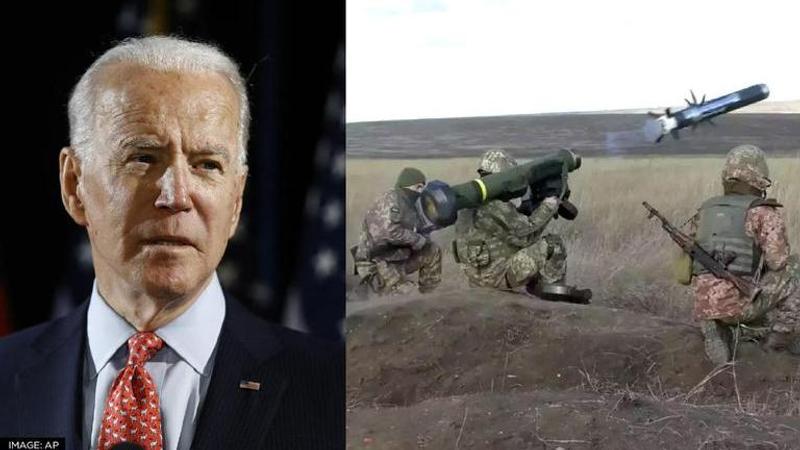Published 15:27 IST, April 14th 2022
US facing shortage of Javelin anti-tank missiles post supplies to Ukraine: Report
With about one-third of its Javelin inventory now sent to Ukraine, the US is on the edge of the running of stock of the "iconic weapon", say experts. Here's why

As the all-out Russian war entered day 50, the US on Wednesday bolstered assistance to war-torn Ukraine with additional military aid in artillery, helicopters, and more. Since the inception of the Russian invasion of Ukraine on February 24, the US has already supplied Kyiv with thousands of anti-tank Javelin missiles. With about one-third of its Javelin inventory now sent to Ukraine, Washington is on the edge of running out of the "iconic weapon," thus requiring the US to immediately reduce transfers to ensure sufficient stockpiles for its own purpose.
"The United States has supplied Ukraine with thousands of Javelins, the anti-tank missiles that have become the iconic weapon of the war, but the U.S. inventory is dwindling," says a report published by the Center for Strategic and International Studies (CSIS) on April 12.
Before knowing further about the US stockpiles of Javelin missiles, it is pertinent to understand why it is called an "iconic weapon" in the war.
What is the Javelin anti-tank missile?
Simply put, Javelin anti-tank missiles are long-range guided precision projectiles that can be carried by one person. It is considered among the most sophisticated, capable, and expensive weapons out of the wide range of anti-tank munitions that the North Atlantic Treaty Organisation (NATO) and other countries are providing to Ukraine, as per the CSIS report. So far, the US has reportedly supplied at least 7,000 such interception missiles to Ukraine.
Since Ukraine was mostly equipped with light infantry, supplies of heavy weapons have allowed Ukrainian forces to combat Russian mechanised artillery. Nevertheless, while Javelins are considered as most capable and best known of the anti-tank weapon systems, it is hardly the most numerous.
In addition, due to huge production time, it takes years to replenish the stock of these "iconic" missiles. So is it possible that Ukraine may run out of US supplies before inflicting serious damage to its enemy on the battlefield?
Why the US could experience a shortage of Javelin missiles?
The report compiled by Mark F. Cancian claimed that since the US has not publicly revealed the latest figures about its Javelin anti-tank missiles in its arsenal, the numbers are likely to be "deduced" given its massive supply to Ukraine. Also, the US has only produced 37,739 Javelin anti-tank missiles since 1994, according to US Army budget books. After using quite a number for training purposes, Washington is expected to hold near about 20,000 to 25,000 remaining and 7,000 of which represent one-third of its total inventory.
While a majority of two-thirds remain in the stock, military planners are "nervous" fearing potential empty Javelin inventory. "The United States maintains stocks for a variety of possible global conflicts that may occur against North Korea, Iran, or Russia itself. At some point, those stocks will get low enough that military planners will question whether the war plans can be executed. The United States is likely approaching that point," the CSIS report explained.
How can the US make up for the imminent shortage?
The easiest answer is by increasing the production of the Javelin anti-tank missiles systems. According to the report, Washington only produces 1,000 Javelin missiles per year despite having a capacity of 6,480. The delivery time for each artillery is at least 32 months. This means, if depleted, the US will need about three-four years to rebuild its stock. In the meantime, more supplies to Ukraine will expand the gap between supply and demand.
According to the CSIS report, the US might have had over-supplied artillery in a bid to beef up its support to Ukraine against a Russian attack. For example, Washington has limited inventories and replenishment options for Stinger anti-aircraft missiles.
Now, the US has already supplied 2,000 of these to Ukraine despite now having purchased for itself since 2003, when the total production was 11,600. Given testing and training losses, which amount to a loss of 1% of Stinger anti-aircraft missiles, the remaining stock could be around 8,000, which means the US has already given a quarter of its stock to Ukraine.
(Image: AP)
Updated 15:27 IST, April 14th 2022




